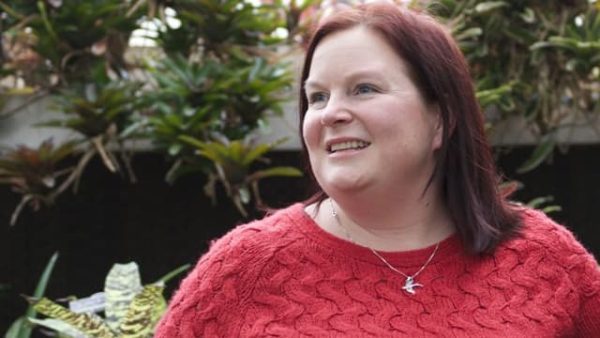Butterfly Highway: Graduate student creates citizen science network

When people consider biodiversity, they often think of far-flung Amazon rainforests or vibrant coral reefs in tropical seas. While biodiversity ranks high on the global scale, it also is vital to the health of humans and the environment at the local level, something that UNC Charlotte doctoral student Angelique Hjarding is addressing through her research and creation of the Butterfly Highway project.
This community-based citizen science and environmental restoration project seeks to monitor butterflies and native pollinators and increase biodiversity in underserved urban residential neighborhoods through planting native butterfly gardens. The effort also seeks to train community members as citizen scientists.
“Citizen science helps to break down the barrier between science and citizens,” Hjarding said. “By working with these communities, I hope the experience acts as a gateway to a better understanding of biodiversity for these citizens.”
Participating neighborhoods include Greater Enderly Park, University Park, Washington Heights, Northwood Estates, Graham Heights, Druid Hills and Oaklawn. Each neighborhood had identified beautification as a priority for its neighborhood. To create the “highway,” Hjarding and volunteers from the neighborhoods and supporting groups will build a network of residential butterfly gardens and public gardens in each participating neighborhood.
The first public butterfly garden is located at the Bette Rae Thomas Center. Hjarding and other volunteers began that installation and the creation of residential gardens in the Greater Enderly Park neighborhood April 25. The residential gardens are raised-bed butterfly gardens that are provided at no cost to the residents.
Expected social outcomes from the project include neighborhood beautification, increased attachment to place and increased conservation knowledge. The National Fish and Wildlife Foundation and Bank of America have provided support for this initiative.
By the time the project ends in September 2016, residents, experts and volunteers will have planted at least 10,000 native pollinator-friendly plants and mapped out butterflies within the neighborhoods
Hjarding also conveyed her message to attendees at the Biodiversity Information Standards 2014 Conference in Jönköping, Sweden, during a symposium on citizen science.
The workshop brought together biodiversity and biodiversity information scientists with citizen science project leaders, with funding from the National Science Foundation. Attendees reviewed case studies and proposed best practices based on science and informatics standards.
Hjarding, who is pursuing a doctorate in geography, presented her examination of biodiversity data gaps in urban areas and her exploration of social justice issues resulting from those gaps.
She found inspiration at the conference in a conversation with a citizen scientist researcher, who described similarities between the challenges he faces in Botswana with biodiversity data gaps and conservation work to those Hjarding sees in disadvantaged communities in Charlotte. This experience, and others she had with citizen scientists from around the world, brought greater context to the importance of sharing data and connections.
“I began finding the challenges with doing conservation work in Charlotte as being very similar to the challenges doing the same work abroad,” she said. “I (previously) did conservation work in Laos and trying to get the villagers to buy into the conservation involving carnivores and large cats took some work. In Charlotte, we’re working in urban communities, but there’s still the challenge of conveying the importance of biodiversity when food security is such a concern.”
Her presentation addressed social and environmental equality issues she examines in her dissertation. Hjarding believes that underserved communities can benefit through community empowerment, sense of place and purpose and connection to nature.
Hjarding highlighted that the lowest income areas have the highest burden of exposure to environmental pollutants. These underserved communities can have inadequate food security and little access to nature, contributing to a social and environmental justice issue. She also found that generally reduced sampling efforts exist in areas with high minority and low income, leading to data gaps and sampling bias.
Scientists from around the globe who participated in the workshop in Sweden are seeking ways to effectively mobilize citizens to collect biodiversity data that they cannot gather alone. They are sharing ideas on how to train, inform and engage volunteers, while also considering ways to ensure the data gathered is scientifically sound.